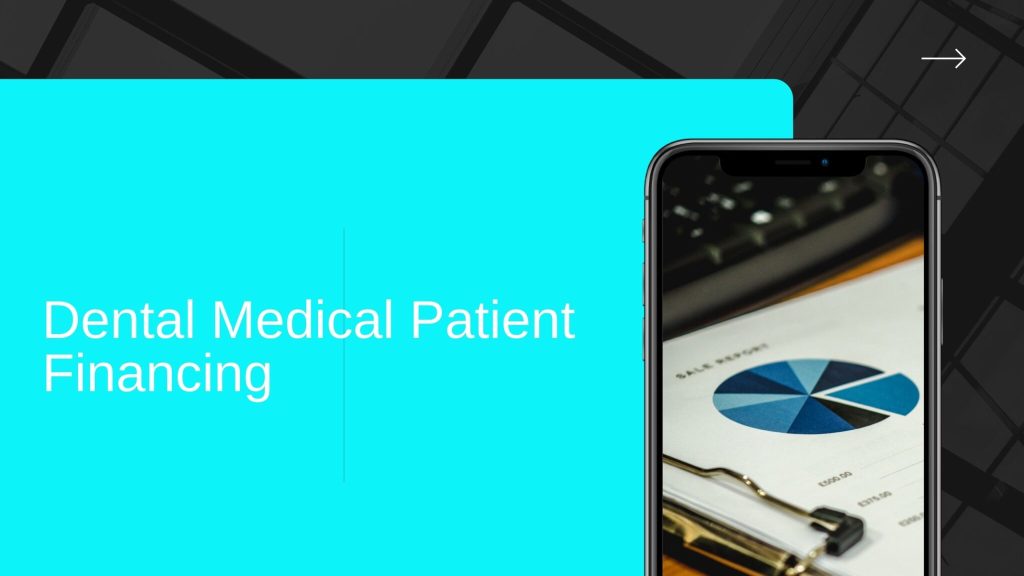Dental Medical Patient Financing: How to Make Dental Treatment Affordable
Dental medical patient financing Having a healthy mouth starts with having healthy teeth, but dental care can be costly. As a result, many people put off going to the dentist until they have a serious problem. Putting off dental problems can cost them significantly more. Thankfully, there is dental patient financing available to help reduce the financial burden of dental care. What is dental patient financing, and how does it function, will be discussed in this article.
What is Dental Medical Patient Financing?
Dental medical patient financing helps patients cover dental costs. Allows patients to pay for dental care in installments over time, typically monthly. Many dental offices now offer payment plans. These plans can be used to pay for preventive care, restorative work, and elective procedures like veneers and whiten
How Does Dental Medical Patient Financing Work?
Financial assistance for dental care typically takes the form of a credit line extended to the patient. If approved, the patient can use the financing to cover the cost of dental care. In return, the financing company receives payments from the patient over time, typically with interest.
Patients in need of dental medical care can choose from a variety of financing options. These options include credit cards, personal loans, and in-house financing. You can use a credit card to pay for dental care. But you should know that the interest rate will likely be higher than what you’d pay with an alternative financing option. Many financial institutions (banks and credit unions), offer personal loans that can be used for dental care. Some dental offices provide in-house financing, which lets patients make monthly payments straight to the office.
Patient Dental and Medical Financing: Pros and Cons
Using dental medical patient financing as a means to pay for dental treatment has many benefits. Spreading out the cost of treatment is one of the main benefits. For people who can’t afford to pay for dental care entirely out of pocket, this can be a great help.
Dental medical patient financing also has the added benefit of being usable for a wide variety of dental procedures. Financing options are available for patients in need of fillings, root canals, or dental implants. In addition to these options, there are more routine dental care, such as cleanings and fillings. This ensures that people can affordably access the care they require.
Finally, for those without dental insurance, medical patient financing can be a helpful alternative. People who cannot afford dental insurance may find financing options to be helpful. That is because they do not require patients to have insurance.
Limitations of Dental Medical Patient Financing
Dental medical patient financing has many benefits, but there are also some drawbacks that should be taken into account. It’s one of the major drawbacks that most forms of financing have associated interest rates. This could result in increased costs for patients receiving treatment in the long run.
A further drawback is that patients may need to undergo a credit check before they are approved for financing. Those who are experiencing or have experienced financial difficulties may find this to be an obstacle.
Last but not least, people who use dental medical patient financing may be bound to a contract that requires them to make payments for a set period of time. Therefore, those who are having financial difficulties or who would like to pay off their treatment sooner than expected may find this to be an inconvenience.
Summary
Costing a pretty penny, dental care is essential for a lifetime of healthy teeth and gums. Financing for dental care helps patients budget for their care by dividing the cost of dental work into monthly payments. The benefits of dental medical patient financing outweigh its drawbacks. Thus making it a good choice for people who cannot afford dental care out of pocket. Dental medical patient financing can help make necessary dental care more affordable for people who are concerned about the high out-of-pocket cost of dental care.


